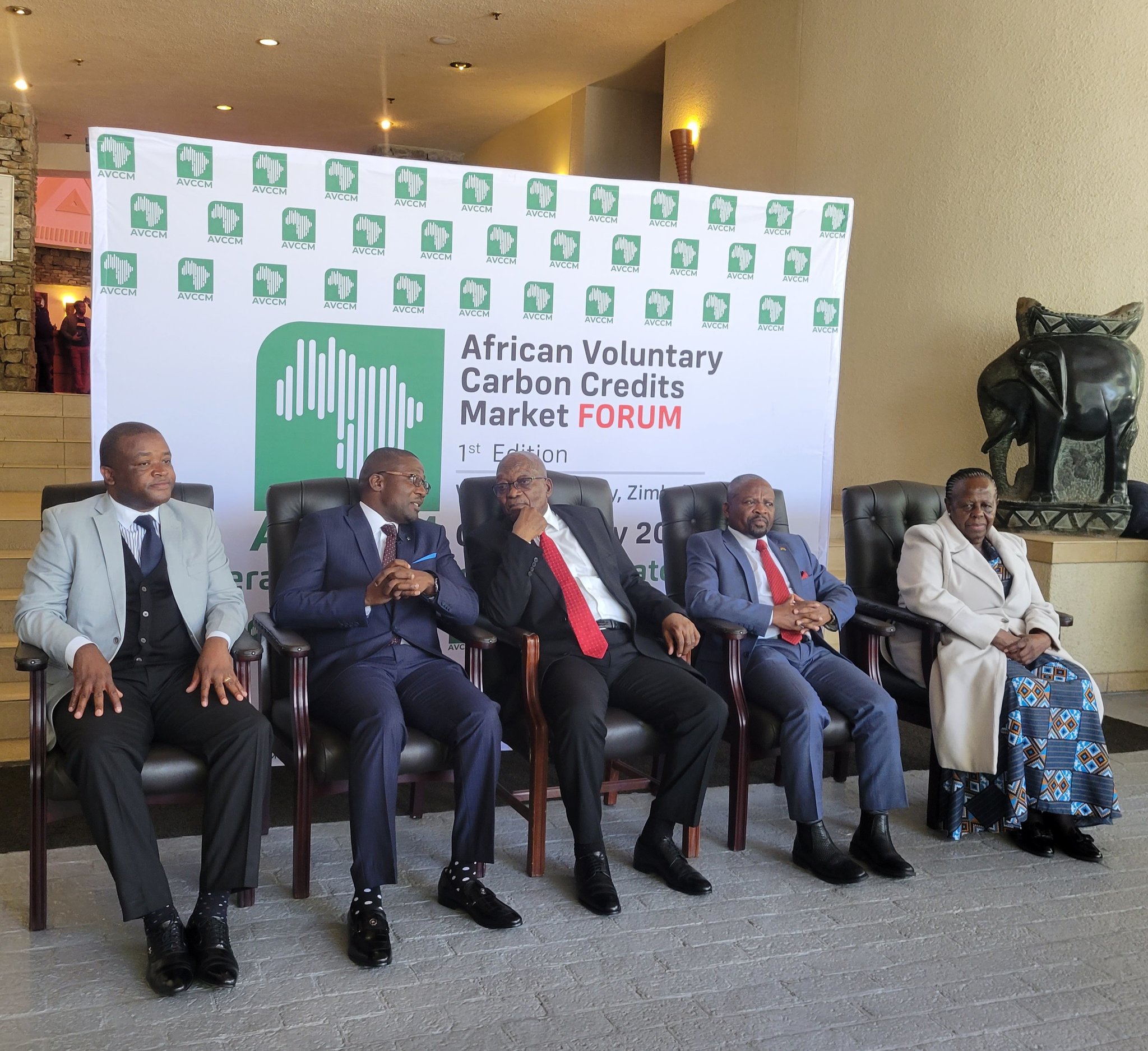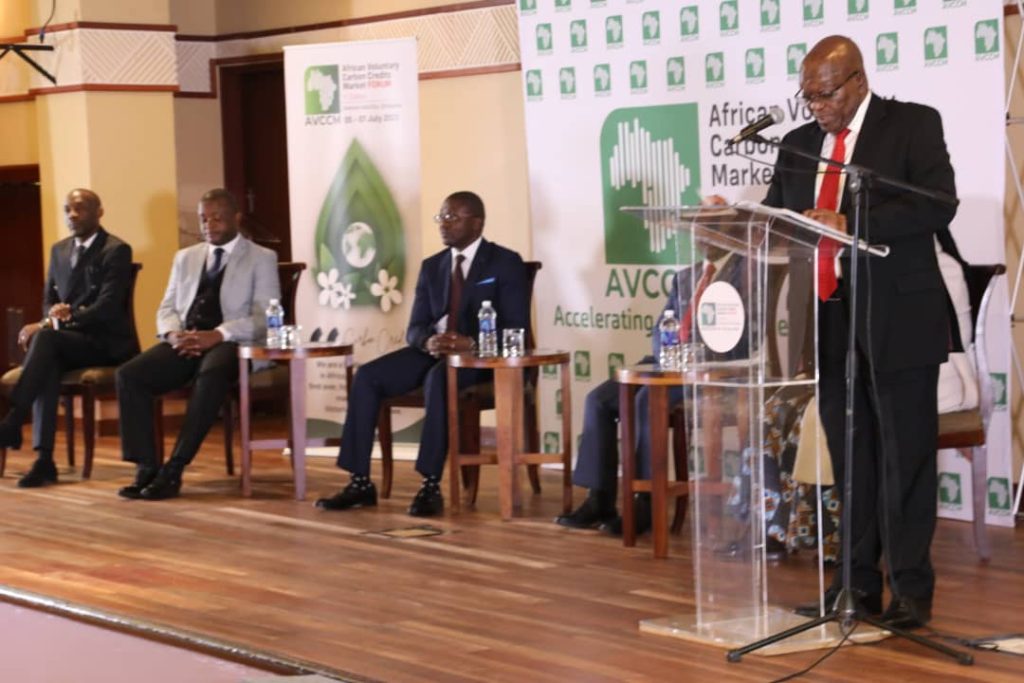
Carbon credits, also known as carbon offsets, are permits that allow the owner to emit a certain amount of carbon dioxide or other greenhouse gases.
One credit permits the emission of one ton of carbon dioxide or the equivalent in other greenhouse gases, thus allowing them to receive recognition for their contribution towards climate action. (Tourism Ministry)
Environment, Climate, Tourism and Hospitality Industry Zimbabwean Minister Hon Nqobizitha Mangaliso Ndhlovu has officially opened the Africa Voluntary Carbon Credit Market Forum under the theme, “Accelerating Africa in Climate Economy,” at Elephant Hills Resort in Victoria Falls, today.
The Conference is a brainchild of Africa Voluntary Carbon Credits Market, a local initiative that seeks to facilitate a robust, holistic and inclusive people-centric approach to the climate economy.
The intervention is set to increase the momentum leading to the achievement of Zimbabwe’s National Development Strategy (NDS1) goals , Zimbabwe Vision 2030, Sustainable Development Goals (SDGs), and setting the tone for Africa Agenda 2063.
In attendance, include the former President of the Republic of South Africa His Excellency Jacob Zuma, who is also the Board Member of Belarus-Africa Foreign Trade Association, Malawi Minister of Environment, Hon Dr Michael Usi, South African Ambassador to Zimbabwe Her Excellency Rejoice Mabudafhasi, Acting Mayor of the City of Victoria Falls, Cllr Mutasa, Co-Chairpersons of the African Voluntary Carbon Credits Market, Chief Director Environment, Climate and Meteorological Services Department Professor Prosper Matondi, Director Climate Change Management Department Mr. Washington Zhakata, Senior Government Officials, Private Sector Representatives and other invited guests.
Minister Mangaliso Ndhlovu articulated that Zimbabwe has developed its national Carbon Trading Framework which will guide players and protect investors who wish to establish carbon trading related projects in the country. The Framework establishes institutions to enhance transparency of transactions and accountability to ensure that the country gets a fair share of the proceeds from the trade. For the avoidance of doubt, this is climate financing that should and must enhance the developing countries’ capabilities to achieve their economic growth objectives in a sustainable manner.



